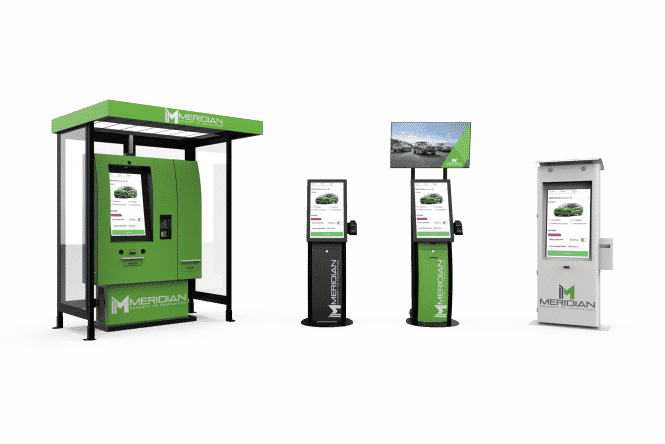
Automotive Kiosks and Car Buying
For most, the car buying process is long, tedious, and filled with lots of waiting. Think back to the last time you bought a car. Odds are, you probably started by conducting some online research before you even went to the dealership. If so, you probably looked at a few different brands, models, and years to determine which would be the best fit for your needs. You may have made note of any special features you wanted and considered how much you were willing to spend. Finally, at some point you made your way to the dealership.
By the time you arrived at the dealership you were probably ready to take a test drive, and ultimately prepared to make a purchase. However, upon your arrival, one of two things happened—either you got lucky and someone was ready and willing to help you, or the showroom was full of people waiting to be helped when you arrived, putting you at the back of the line. What if there had been a third option—a self-serve automotive kiosk, perhaps? Rather than sitting around and waiting for a salesperson to finish up with the customer they were helping, the kiosk could have helped you get started on the sales process.
Sound appealing? Whether you’re the customer or the salesperson, the answer is most likely yes. As consumers’ lives have become increasingly busy, the value of convenient time-saving and self-serve solutions has skyrocketed. And it’s no secret that busy customers value efficient service. For this reason, among others, digital automotive kiosks are completely transforming the car buying experience in dealerships across the country.
Automotive kiosks don’t just make the car buying process easier for consumers, though, they simplify the process for car salespeople as well—increasing the number of customers being helped at the same time, speeding up the process, and creating happier customers all make salespeople’s jobs easier. Automotive kiosks are decreasing transaction time, improving customer service, and providing a personalized buying experience.
Decreasing Transaction Time
Prior to embarking on their car shopping journey, most car shoppers accept the fact that the process, from initial research to making their purchase, will be time-consuming. Digital automotive kiosks cut down on transaction time by engaging shoppers from the moment they enter the dealership. If a salesperson is not immediately available to help them, shoppers are redirected to the kiosks where they can begin the process by entering their personal information—license information, phone number, and email address. They may also be given the option to peruse loan information, get approved for loans, and browse the dealership’s inventory. In addition, shoppers are able to complete any necessary paperwork while they wait, reducing the need for the salesperson to complete it, and thus making the purchasing process quicker and more efficient.
Improving Customer Service
As with any industry, one of the main benefits of a digital kiosk in a car dealership setting is that it has the capability to take some of the more menial, automated tasks out of the hands of the salespeople. By shifting some of their responsibilities to the kiosks, salespeople have more time to help and build relationships with customers—joining them on test drives, explaining and demonstrating key features, answering questions, and completing sales. Automotive kiosks can also collect valuable customer information, making it easier for salespeople to follow up and check-in with customers once they depart from the dealership.
Providing a Personalized Buying Experience
Having an interactive digital kiosk in a car dealership puts the shopper in control of their buying experience from beginning to end. All of the inventory, vehicle, and loan information is presented in a way that’s straightforward, transparent, and perfectly catered to each individual customer’s unique needs and budgetary requirements. It also allows customers to navigate the process in a way that best meets their needs. For those who are unable to conduct research prior to visiting the dealership, automotive kiosks afford them the opportunity to still do so before meeting with a salesperson.
Automotive kiosks are also highly adaptable and designed to comply with standards set forth by Americans with Disabilities Act (ADA) regarding reach and accessibility. Automotive kiosks can also be designed to address visual and hearing impairments through, Voice Over IP (VoIP) and Telecommunication Device for the Deaf (TDD) technologies. These additional aspects take personalization to the next level, ensuring that all customers have access to the same information and services through the kiosk.
Though the car buying process will never be a simple one, digital kiosks are transforming the shopper experience—reducing wait times, improving transparency and customer service, and making the process more personalized.
To learn more about Meridian’s self-service digital kiosks, visit meridiankiosks.com.

